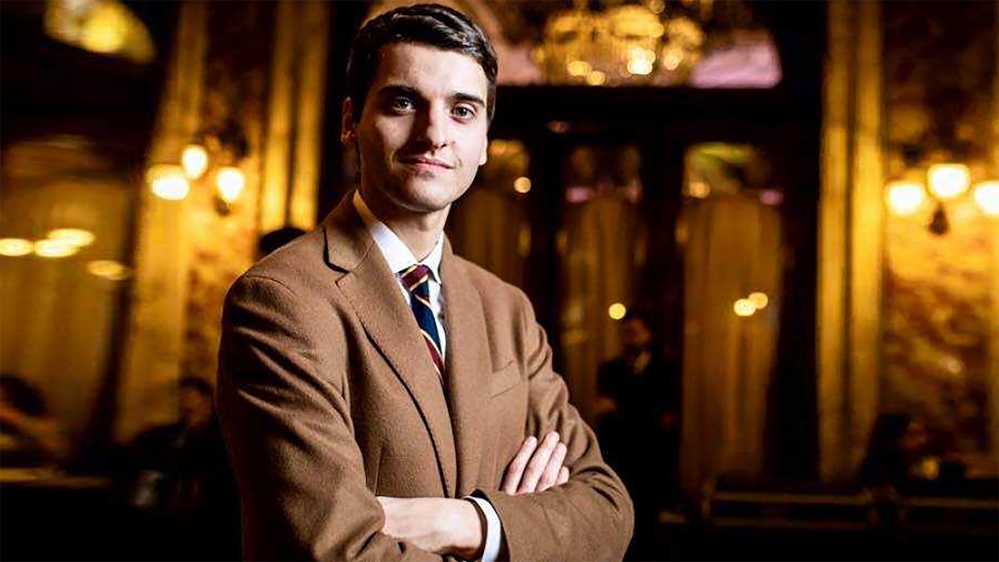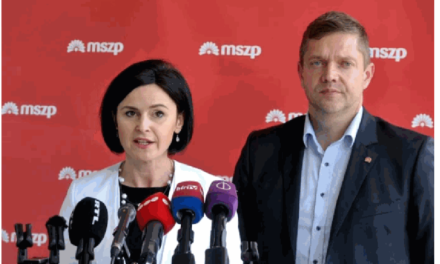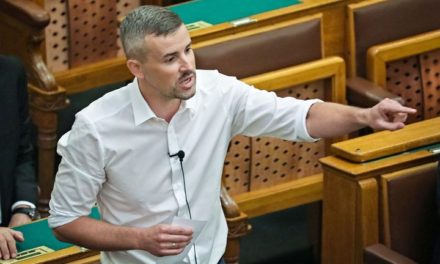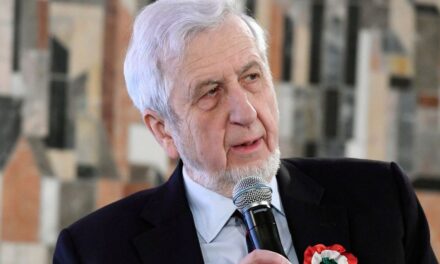Francesco Giubilei came to our country at the beginning of May to study Central European conservatism. After completing a three-month guest researcher period, he reviewed his experiences in Hungarian public life, the Hungarian-EU relationship system and Hungary's central role in the international network of conservative forces. Interview with the director of the Nazione Futura analysis institute.
- In May, at the beginning of May, he arrived in Budapest, Hungary, to research and study Central European conservatism. We are now in August, so if you summarize the acquired knowledge, what is the main benefit, the essence of this period?
– I found a country where something is happening, things are developing. I found an interesting place in the Mathias Corvinus Collegium, as it is both a research institute and an educational institution. You can meet many young people from universities and serious intellectuals at the same time. I had great meetings, but not only with Hungarians. The situation, which is the most important and interesting thing, is that Budapest is really becoming the capital of European conservatives, in fact they come from all over the world, for example, very important American conservatives have also visited Budapest. The goal is to build an international network. I really felt here that I could freely say what I wanted. I attended many conferences, visited various organizations and universities, gave newspaper interviews, visited foundations, these brought very different experiences, but every time I was free to say what I thought. Then, after the three months, I understood certain things about Hungary.
I also tried to dig deep into Hungarian history in Italy, I read from their most important writers in order to understand your significant history, but the fact that I spent a relatively long, although not too long, time here helped me understand something about the geopolitical situation, as well as about Hungary and on the relationship between the European Union. I think that those Western Europeans who want to talk about Hungary should come without a preconceived image. You know, it happens that journalists travel to Hungary, Poland, or elsewhere with the article already ready in their heads. But this is not good, they have to come without any kind of preconceived image, talk to the people, understand the conditions, the history, and then maybe they will really understand what is really happening here.
- During the period he spent here, he also brought a deepening of the debate between Hungary and European institutions. How did you watch this debate from here, and how did they see it in Italy, because I'm sure you followed it too.
– I think that the perspective from the Western media is completely different. Seen from the Italian, French and German media. I have read some articles in the Western media about Hungary, about events that have happened in recent months and which I have to say - because I was here - are simply not true, the story is completely different. That particular law is also completely different from what they try to describe and summarize. What I think is very important is that - even if no alliance is created - there should be a dialogue between the West and the East in Europe. I think that there are interests shared by Hungary and Italy, I will say only one thing: among the seven-point proposals of the Hungarian government is the admission of Serbia to the EU. In Italy, he recently had his first meeting with the Minister of Foreign Affairs, as a member of the Council of the Conference on the Future of Europe. The minister spoke about the importance of the Balkan region for Italy. So that, in addition to Serbia, Albania, North Macedonia, and Montenegro also enter the European Union. This is a topic in which we could act together, and of course there are other topics that can be discussed. At the same time, the most important thing that I want to emphasize upon returning to Italy is that the decision of the citizens of each country must be respected. The Hungarians, but of course the Portuguese, the Swedes, the Danes, all over Europe. We must try to respect other cultures, if this is achieved, then it is already the basis of a good exchange of ideas. If we do not respect each other, it is difficult to build a unified European Union.
- He mentioned that networking between East-Central Europe and Western Europe is important. What can such a network be based on, between Central Europe and Western Europe, or even between Italy and the region? Your foundation has started cooperation with Central European analytical institutes in recent weeks.
-There are different aspects regarding these collaborations. One is economic cooperation, which is created and can be developed in industry. There is also political cooperation between institutions, which is of course very important, but initiatives outside of politics are also important. Now we are here at the MCC Festival in Esztergom, the next day my foundation, Nazione Futura and Mathias Corvinus Collegium will start a joint event. We invited 25 young conservative personalities from Europe, under the age of 35. They come from Serbia, Macedonia, Sweden, the Netherlands, Spain, Slovakia, so from all over Europe. Our idea is to create a network, we will have our first meeting now, we will discuss conservative issues. It will be about the media, the world of culture and politics. Next year, we will organize our meeting in Rome, and with that we will actually start this kind of cooperation, we will make the network work. And you mentioned another form of cooperation; conclusion of agreements between Hungarian and Polish foundations and us. I think that the only way is networking, to formulate ideas, common issues from Hungary, through Italy and France to Spain. From a media and cultural point of view, we need to get people to hear our voice.
author: hirado.hu
Photo: Mathias Corvinus Collegium













